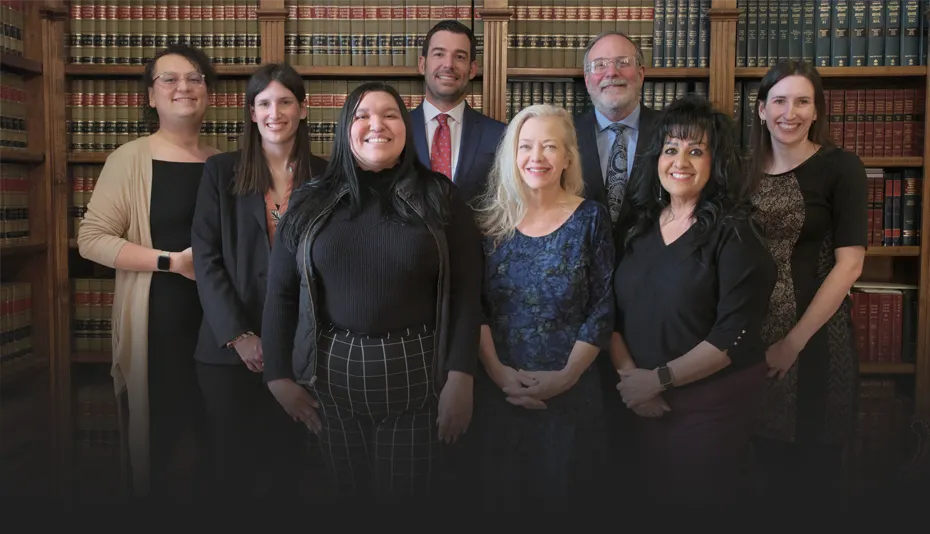Recent Results
Kidneigh, Kaufman & Crichton, P.C. is dedicated to helping you protect your rights in your personal injury case.
With over 30 years of experience, and over $100 Million recovered, we have a record of winning cases for our clients. We will fight the insurance company to ensure that you receive the damages you deserve.
If you or someone you love has suffered because of the negligence of another, call us at (303) 393-6666, or fill out the form to receive a free case evaluation. Someone from our office will contact you within 24 hours to start helping you with your case.
Workplace Accidents
Workplace accidents are unfortunately common. From 2001 to 2013, there was an average of about 28,000 non-fatal work injuries in Colorado each year.[1] Workplace accidents can temporarily or permanently affect the worker’s quality of life and ability to work. They can cause amputations, disability, and even death.
Worker’s Compensation in Colorado
In Colorado, worker’s compensation covers almost all employees, both part-time and full-time. Workers are entitled to it no matter how the injury was caused, even if the injury was the employee’s own fault. Worker’s compensation helps to cover losses workers incur because of injuries but without filing a lawsuit.
Worker’s compensation is monetary compensation for specific types of losses. It will cover a percentage of lost pay, depending on the severity of the injury until a doctor clears the worker to resume working. Then, the worker is entitled to a lump-sum payment based on what body part(s) is/are injured and how severely. It doesn’t cover damages like pain and suffering.
New Injury or New Pain From an Old Injury?
Worker’s compensation claims cover injuries caused or aggravated by workplace accidents. It doesn’t matter that the original injury occurred elsewhere or at a different time.
Can a Worker Sue Their Employer?
Worker’s compensation almost completely replaces this right. In Colorado, an employer must have and maintain insurance to cover worker’s compensation claims. However, an employee can sue an employer who has no worker’s compensation insurance or if the insurance won’t adequately cover the costs of the injuries.
A worker can sue their employer, however, if the employer or another employee hurt them intentionally and caused the injury. In this case, the injury is not an accident.
Can an Employer Fire an Employee for Filing for Worker’s Compensation?
No. Employers can’t punish or retaliate against workers for filing a worker’s compensation claim, nor can they interfere with or try to talk an employee out of filing a claim.[2] An employee can sue an employer if the employer retaliates for filing a claim.
What If It’s the Equipment, Tools, or Chemicals That Caused the Injury?
The worker may have a claim for product liability against the maker of the equipment or tool that hurt them. Manufacturers may not sell or make available unsafe products. A personal injury lawyer can represent a worker in a lawsuit against the manufacturer of a dangerous product that injured the worker.
While injured workers cannot sue their employer, they may still be able to make a claim against another party, who caused or contributed to their accident or injury, which can include not only a manufacturer, but also a general contractor or subcontractor.
How Does an Injured Worker Get Worker’s Compensation?
The first thing any injured worker should do is retain a lawyer to file a claim with the Colorado state worker’s compensation board. Worker’s compensation is not a legal claim like a lawsuit. However, any injured worker increases the likelihood of filing a successful claim if they hire a lawyer to represent them. A lawyer specializing in worker’s compensation knows the complex laws involved, how to file a claim, calculate benefits, and which benefits to ask for to ensure maximum coverage.
If you sustained a job-related injury and need to know what to do next, call 303-393-6666 to speak to one of our lawyers and find out what options you have to recover your losses.
[1] See Colorado Departmnt of Public Health and Environment. WORKPLACE SAFETY SURVEILLANCE REPORTS. Indicator 1: Non-Fatal Work-Related Injuries and Illnesses. https://drive.google.com/file/d/0B3n_YMkox1lDbkxTNVppTVpRLVU/view
[2] Martin Marietta Corp. v. Lorenz, 823 P.2d 100, 108 (Colo. 1992)



